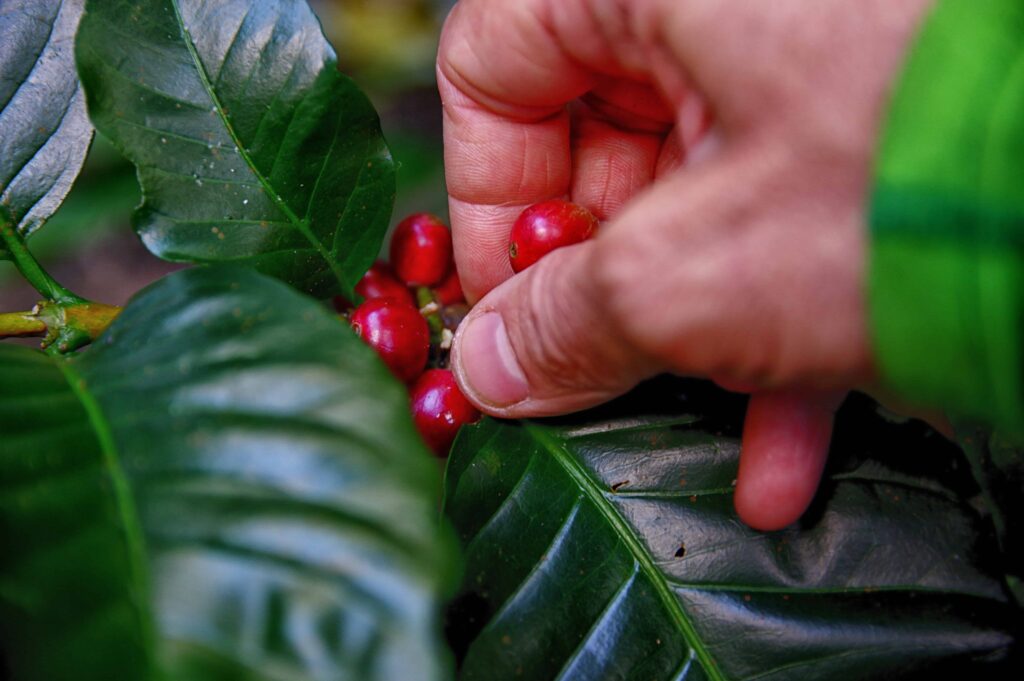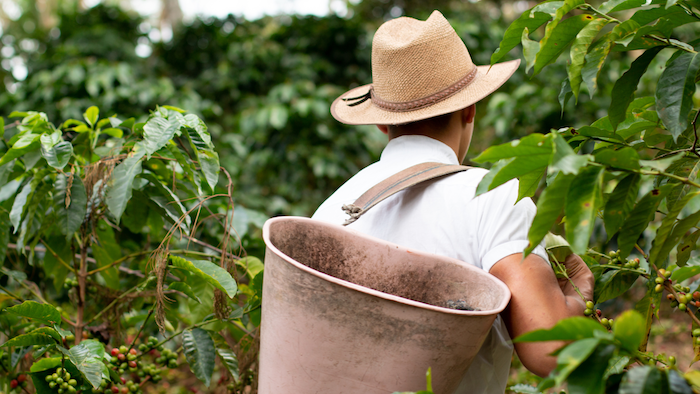Last updated on July 9th, 2023 at 07:23 pm
Uncover the remarkable potential of fair trade coffee.
Coffee is more than just a drink. It holds the power to create a positive impact on the lives of coffee farmers and their communities worldwide. One way to ensure this is by choosing fair trade coffee. In this blog post, we’ll explore the importance of fair trade coffee, diving into its principles, the benefits it brings to farmers and the environment, and how you can make a difference with your daily brew of Thrivers Coffee.
Understanding fair trade coffee
Fair trade is a movement that aims to address imbalances and injustices in global trade. It promotes transparency, ethical sourcing, and sustainable practices. Fair trade certification guarantees that coffee is sourced from farmers who receive fair prices for their beans and work under safe conditions.
Ethical sourcing in the coffee industry

The conventional coffee industry, unfortunately, faces significant challenges when it comes to ethical sourcing, leading to exploitative practices, low wages, and poor working conditions for farmers. Here are some key aspects to consider:
- Exploitative Practices:
- In many coffee-growing regions, middlemen and intermediaries take advantage of the vulnerability of small-scale farmers. These middlemen often offer unfair prices for the coffee beans, keeping the farmers trapped in a cycle of poverty.
- Unethical labor practices, such as child labor and forced labor, can be prevalent in some areas. Farmers sometimes rely on cheap or unpaid labor due to economic pressures.
- Low Wages:
- Coffee farmers often receive a small portion of the profit generated along the coffee supply chain. As a result, they struggle to earn a fair and sustainable income from their hard work.
- Fluctuating global coffee prices can make it even more challenging for farmers to secure stable and sufficient incomes, pushing them further into poverty.
- Poor Working Conditions:
- Many coffee farmers work in challenging conditions, including long hours under the sun and physically demanding labor. They may lack access to proper safety equipment or protective gear, putting their health at risk.
- Limited access to clean water, healthcare, and education further exacerbates the hardships faced by coffee farming communities.
- Lack of Transparency:
- The lack of transparency in the conventional coffee industry often means that farmers have little knowledge of where their coffee beans end up or how much they are ultimately sold for. This lack of transparency can lead to exploitation and unfair treatment.
- These challenges contribute to an imbalanced coffee industry where farmers struggle to make a decent living from their crops, perpetuating a cycle of poverty and inequality.
Empowering coffee farmers through fair trade

However, fair trade coffee offers a viable alternative. Fair trade certification ensures that farmers receive fair prices for their beans, enabling them to cover production costs and improve their livelihoods. It provides transparency and traceability in the supply chain, ensuring that consumers can make informed choices and support ethical practices. Additionally, fair trade certification provides farmers with access to training, education, and resources to improve their farming practices and productivity.
These initiatives contribute to the economic development and self-sufficiency of coffee-growing communities.
Promoting sustainable agriculture and environmental stewardship
Fair trade coffee also encourages sustainable agricultural practices that minimize the impact on the environment. Many fair trade farmers employ organic farming methods and grow coffee under shade trees, promoting biodiversity and protecting natural habitats. By choosing fair trade coffee, consumers support environmental stewardship and contribute to a more sustainable future.
Choosing Fair Trade Coffee: Making an Impact with Your Brew
Making a difference with your daily cup of coffee is easier than you might think. Look for the fair trade certification label when purchasing coffee and choose brands that prioritize ethical sourcing. By supporting fair trade, you ensure that your coffee purchases contribute to the well-being of coffee farmers and their communities, fostering a more equitable and sustainable coffee industry.
Conclusion
Coffee has the power to do good beyond its delicious taste. With every sip, you can make a positive impact on the lives of those who cultivate our beloved beverage.
Thrivers Coffee offers fair trade coffee because it aligns with our mission of combating human trafficking. By adhering to fair trade practices, Thrivers Coffee ensures that farmers are treated ethically, receive fair prices for their hard work, and are not subjected to exploitative labor practices.
Our commitment to direct trade relationships and transparent sourcing empowers coffee farmers, allowing them to improve their livelihoods and break free from the cycle of poverty.
Choosing Thrivers Coffee means not only enjoying a rich cup of coffee but also making a conscious choice to support a brand that actively works towards positive social change. With each sip, you contribute to the fight against human trafficking and help create a more equitable and sustainable coffee industry. Together, let’s raise our mugs and commit to making a difference, one cup at a time.



